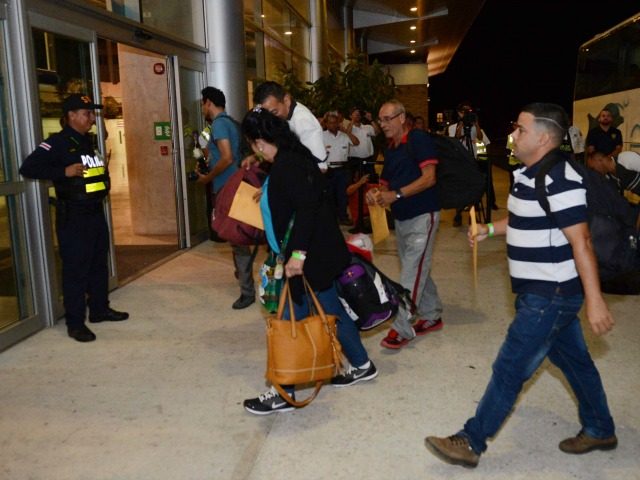The Obama administration has not discouraged Central American countries from airlifting thousands of Cuban migrants to the U.S.-Mexico border, according to a senior State Department official.
“We have not told them not to do the airlift,” Francisco Palmieri, an official with Bureau of Western Hemisphere Affairs, testified Tuesday before a Senate Foreign Relations subcommittee hearing examining President Obama’s FY 2017 State Department budget request.
Palmieri was responding to questions posed by Sen. Marco Rubio (R-FL), the Chairman of the Subcommittee on Western Hemisphere, Transnational Crime, Civilian Security, Democracy, Human Rights, and Global Women’s Issues.
In recent months there has been a significant increase in the level of migration from Cuba to the U.S., as Cubans leave the island nation seeking the special protections the U.S. grants Cuban refugees under the Cuban Adjustment Act.
According to Rubio, a son of Cuban immigrants, over a five month period alone, from October to February, some 18,500 Cubans crossed into the U.S. at the Texas Laredo field office. Since October, another 2,700 Cubans have sought access to the U.S. by sea.
Concerning to Rubio, however, is the posture of the Central American countries, who are dealing with the migration by simply putting the Cubans on planes and flying them to the U.S.-Mexico border.
“And if you read the press reports, some of these governments, their body language or attitude is, ‘We’re gonna put them on a plane and fly them as close as possible to the U.S. border so they can cross in,’” Rubio said Tuesday. “In essence, ‘We don’t want this problem.’”
“This is a major developing issue here and much of this upsurge has occurred since the deal,” he added, in reference to the administration’s effort to normalize relations with Cuba.
Palmieri conceded that Costa Rica and Panama have flown 8,000 Cubans to the U.S.-Mexico border this year, but said the administration did not know why such large numbers of Cubans have chosen to emigrate to the U.S. now.
“I don’t know. I can’t comment directly on the individual motivations of these Cuban migrants, but I can make clear that the Administration is not entertaining any idea of a change to the Cuban Adjustment Act, and so that shouldn’t be a factor in their decision calculus,” he said.
Reports have indicated that many Cubans —so far mistakenly — fear that the normalization effort will also result in changes to the special protections of the Cuban Adjustment Act.
Rubio has called for an end the automatic special treatment and refugee label Cubans receive when they arrive in the U.S., arguing the benefits — which include welfare and an expedited path to permanent residency — should be reserved for Cubans who have truly been persecuted.

COMMENTS
Please let us know if you're having issues with commenting.